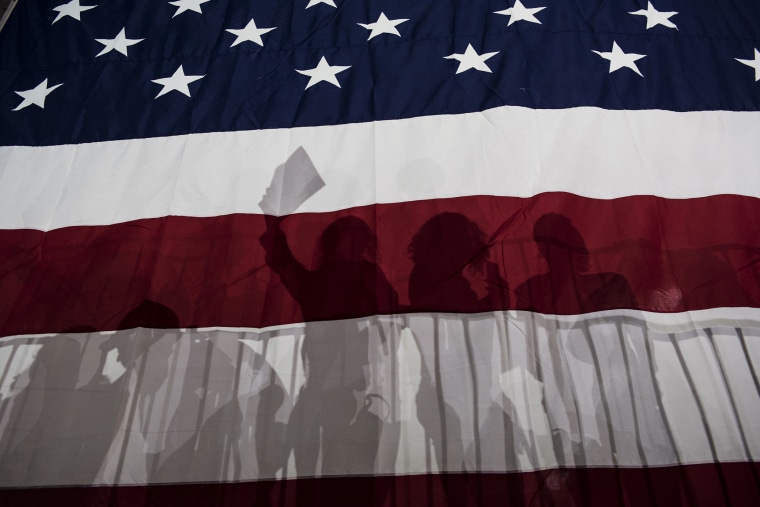Both Donald Trump and Hillary Clinton are leading their respective delegate races. But even among the rosiest of scenarios for both, it's possible — if not likely — that they won't reach their magic numbers to clinch their nominations until the final primaries on June 7.
Donald Trump currently has a 95-delegate lead over his closest competitor Ted Cruz, 459-364, according to NBC News' count. If he wins both Florida and Ohio next week (and wins the other delegates at the percentage he's currently getting), he will stand at 721 delegates — 516 short of the magic 1,237 number to clinch the nomination.
So to reach 1,237 delegates before June 7 — when California and four other states hold their primaries — Trump would need to win about 80 percent of the delegates up for grabs between March 16-May 24. And that's unlikely to happen, even under the best circumstances for Trump if he continues to have an opponent (say Cruz and/or John Kasich).
On the Democratic side, Hillary Clinton leads Bernie Sanders by more than 600 delegates (when you include superdelegates), 1,194 to 569. That is 1,189 delegates short of the 2,383 needed to clinch the Democratic nomination.
For Clinton to reach 2,383 before June, she would need to win 58 percent of the remaining pledged delegates — her current pledged percentage against Sanders — between now and May 17 (a total of 1,930 pledged delegates), as well as add to her superdelegate lead (with 200-plus undeclared superdelegates remaining).
So clinching the nomination by May is doable for Clinton, but not if Sanders starts pulling off more surprises like his Michigan victory on Tuesday. If Clinton and Sanders split the remaining 1,930 pledged delegates 50-50, as well as the undecided superdelegates, Clinton won't hit 2,383 until June.
This story originally appeared on NBCNews.com.
